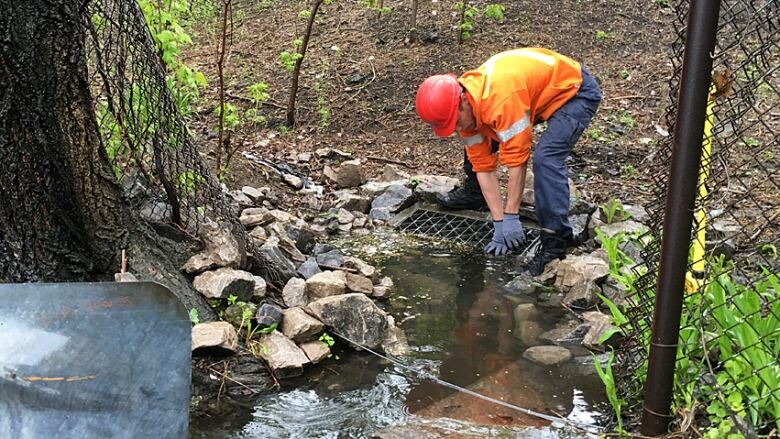Hamilton wrings out: Crews repair Mountain accesses after rain-soaked week
Kenilworth Access upbound reopened after crews cleaned up a mudslide

Mudslides, flooded basements and damaged culverts: It was quite a wet week.
Hamilton got drenched this week with an estimated 82 millimetres of rain since May 1, and the city and homeowners are now left to wring out and fix the damage.
City crews respondedto reports of flooded roads, basements and sewer backups, according to Jasmine Graham, a city spokeswoman. Flooding was especially bad for homes near Lake Ontario.
The city closed theupboundlanes of theKenilworthAccess above the hair-pin turn due to a mudslide, but reopened it Sunday. The west leg of the Sherman Access remains closed Sunday for repairs to the shoulder.
Update: The KENILWORTH ACCESS has reopened at the hairpin turn, however the connection from eastbound Sherman Access remains closed. #HamOnt
—@cityofhamiltonHere are some other impacts of all that rain:
- York Road was closed due to a damaged culvert and embankment
- All city sports fields are closed
- The Waterfront Trail between Bayfront Park and Cootes Drive is closed due to high water levels
- The leash-free dog park named for Corp. Nathan Cirillo, and Spencer Creek Trail, are both closed
What other impacts have you seen? Let us know: hamilton@cbc.ca
Climate change in action
This weather shouldn't surprise us, saidPaulinCoulibaly. He'sa McMaster University professor and scientific director of Floodnet, as well as and a member of the McMaster Centre for Climate Change.
This is climate change in action, said Coulibaly. As the planet warms, it causes more evaporation, which causes weather systems that drift and hover over areas for more extended periods of time.
Cities such as Hamilton have to design more resilient structures, he said, and have more park and grassland areas to absorb the water. And with climate change happening at faster rates than initially predicted, there's no time to waste.
"Most of the projections made us think we have time," he said. "Now it seems what we thought would happenin 2030s and2060s will be here in the 2020s, sadly."
To report flooding or fallen trees anddebris, call 905-546-CITY (2489). The city has also offeredtips to prevent your home from flooding.












_(720p).jpg)


 OFFICIAL HD MUSIC VIDEO.jpg)
.jpg)



























































































